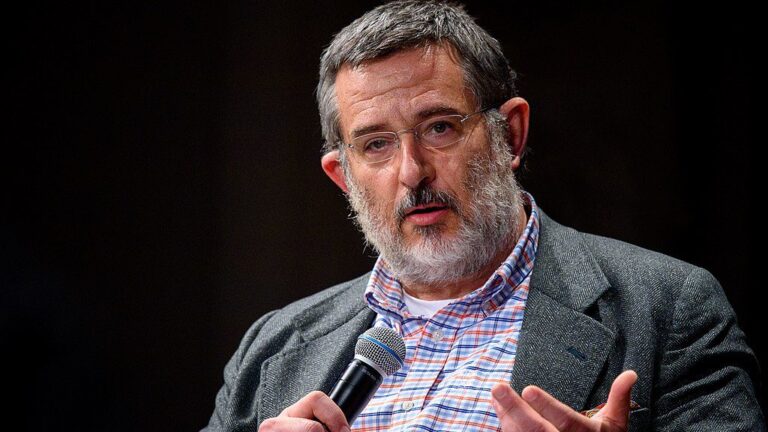For the past few weeks, women archaeologists working on an excavation site near the royal basilica of Saint-Denis in the north of Paris have been subjected to intimidation and insults on the grounds that they wore ‘indecent’ clothing and did ‘men’s work.’ Posters calling for respect for their work and their persons have been put up around the site. The verbal abuse the women have been subjected to has reignited the controversy surrounding the origin of the perpetrators, who belong mainly to North African immigrant populations that have become the majority in certain areas of Seine-Saint-Denis.
A major preventive archaeology project has been underway for several weeks in the city of Saint-Denis, to develop a square in the city centre, just a few metres from the basilica. The aim is to determine whether the planned redevelopment could harm ancient remains that have not been identified. Several women are working on a part of the site that is visible to the public. Oriane Filhol, deputy mayor in charge of women’s rights, reports two types of aggression to which they have fallen victim: “The first is related to their bodies because, quite simply, since it’s been hot, they’ve been wearing tank tops; the second is because they’re said to be doing a man’s job, and that their place would be at home.”
One of the site managers confirms the recurrent nature of the friction with passers-by. “The police were alerted, patrols were set up, and a reminder of the law was issued,” he explains, adding that since then, “things have calmed down.”
Initially, the town hall staff considered whether to cover the site with a tarpaulin but decided against it in the interests of public communication: “By leaving the excavations visible, we are enabling local residents to see the treasures that abound in our region,” they explained. The decision was therefore taken to put up posters asking people to respect the work of “women archaeologists”: “Adopt the right behaviour,” the posters read, reminding people that sexist contempt is punishable by law. According to BFMTV, many of the posters have been torn down since.
There have been many articles in the French press about this affair, but none has dared to tackle head-on the question of the origin of the people making the threats and insults. Why are these kinds of attacks happening in Saint-Denis? It’s common knowledge that the department of Seine-Saint-Denis has the highest proportion of immigrants of non-European origin in France. Insecurity is high in Saint-Denis, the department’s capital, which is home to a large community of Muslim-immigrant origin—a town, in the words of Le Figaro, known for its “communitarian excesses.”
The ‘reproaches’ levelled at women archaeologists are not insignificant: they are castigated for their ‘shamelessness,’ for the fact that they practise a ‘man’s profession,’ and for the ‘indecent’ poses they strike while working. The rhetoric is clearly identifiable as misogynistic, but the mainstream press refuse to denounce it, leaving it to social media, which points the finger—and with liability—at “Islamism” and “fundamentalism.”
The town hall’s press release speaks of gender-based violence, omitting to specify that the archaeologists, according to CNews, have also been challenged by women. The accusation of ‘sexism’ in this specific case leaves a lot to be desired; it obscures the role cultural and religious background plays in this scenario. “There’s a religious side behind it,” a resident of Saint-Denis explained to CNews. “It’s because a woman shouldn’t show her legs, for example,” he added.
Faced with the controversy, the deputy mayor tried to cloud the issue and trivialise the facts. She denounced “Saint-Denis bashing on social media,” “racist, Islamophobic, degrading, and discriminatory comments that have nothing to do with anything.” In her opinion, men assault women “everywhere and all the time, in France and elsewhere,” and she asserts her determination to fight “against all forms of discrimination.”





